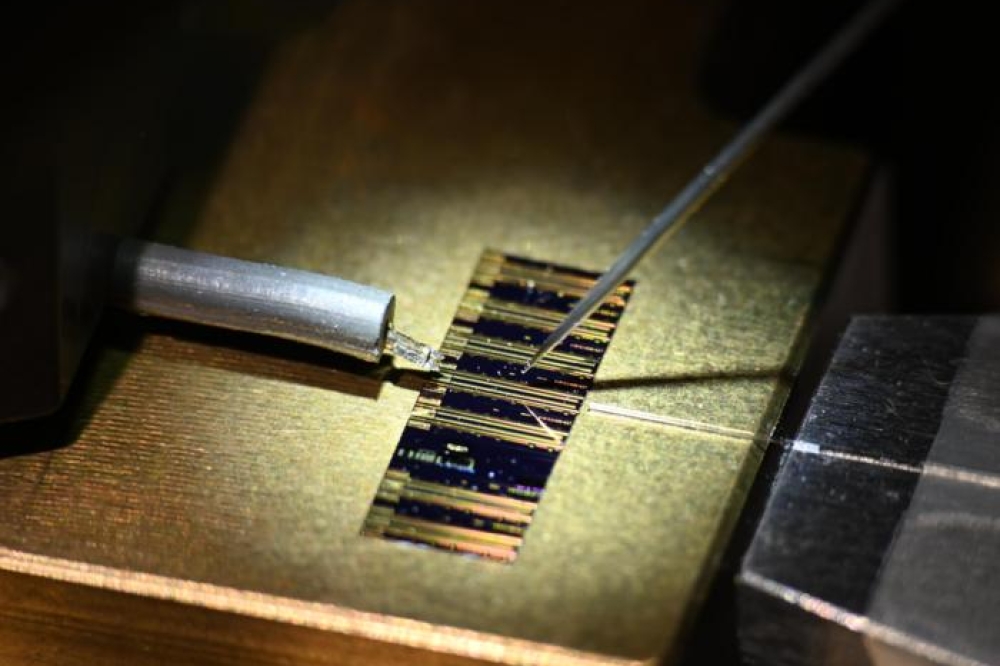News Article
GaAs based module cell efficiency reaches a new high at 33.9%
Confirmed by the Instituto de Energía Solar of the Universidad Politécnica de Madrid, Semprius' gallium arsenide based multi-junction cells have been independently verified
Semprius, an innovator in high concentration photovoltaic (HCPV) solar modules, says it has set a new world record for photovoltaic module efficiency, reaching 33.9 percent (active area).
The module was tested indoors at Standard Test Conditions (850 W/m2, 25°C cell temperature, and a spectrum matched to AM1.5D) by the Instituto de Energía Solar at the Universidad Politécnica de Madrid (IES-UPM). This efficiency result, certified by the IES-UPM and corroborated by outdoor measurements made at the Institute of Concentration Photovoltaic Systems (ISFOC) in Puertollano, Spain, significantly exceeds the previous claim of 32.0 percent.
“This is a significant milestone for Semprius and the entire PV industry,” said Scott Burroughs, vice president of Technology at Semprius. “For the first time, we have been able to convert more than one-third of the sun’s energy into usable electricity. This demonstrates how concentrated PV can leverage rapidly increasing efficiencies to continue driving down the cost of solar generated electricity.”
Semprius delivers a unique GaAs based multi-junction HCPV module design that begins with its proprietary micro-transfer printing process. This process enables the company to fabricate one of the world’s smallest solar cells - approximately the size of a pencil point – to create solar modules with excellent efficiency and performance.
“This is the culmination of our emphasis on bringing smart design to solar,” said Joe Carr, chief executive officer of Semprius. “We looked carefully at each component of our module – cell, optics, enclosure and the manufacturing process – to develop a competitive solution that embodies high efficiency, performance and reliability. Important to our customers is the fact that the module chosen for this third-party evaluation is part of the normal production distribution that will be commercially available later this year.”
After developing its module with the support of the U.S. Department of Energy’s National Renewable Energy Laboratory, Semprius is now ramping up global deployment of demonstration systems while completing construction of a pilot plant in Henderson, North Carolina. Commercial production at the plant will begin during the second half of 2012.
“Semprius as a leader in HCPV modules shows us that we have bet on the right technology,” said Martin Pfund, CEO of the Siemens Energy Photovoltaic Business Unit. “The world record is a breakthrough in module efficiency. Combined with our expertise in turnkey solutions business, it has the potential to become a game changer for the solar markets in regions with high irradiation. With Semprius as a partner, we will further broaden our portfolio in the photovoltaics market. We’re very pleased to be working together with Semprius to commercialise this technology globally.”































